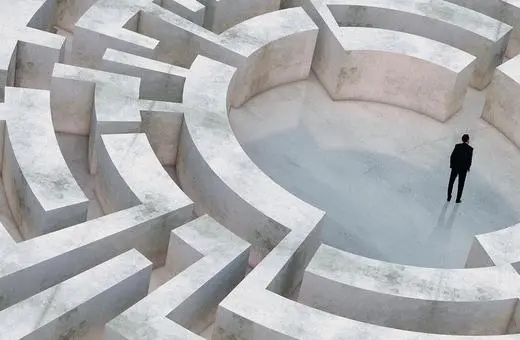The idea that free will is an illusion is rife. Everyone from neuroscientists to philosophers, podcasters to mystics, is arguing that the idea we are truly in control of our decisions and actions is nothing more than a persistent illusion. Others are not so sure, the feeling we control our lives cannot be outdone by argument alone – experience is a source of knowledge too. Donovan Miyasaki argues that more important than whether we have free will or not, is why we are asking the question in the first place.
If we could prove with certainty that human beings possess free will, would that knowledge profoundly affect your life? If you’re already convinced we do have free will, it might make no difference at all. But even if you’re skeptical free will exists, you probably often still act as if it does, carefully deliberating over choices and holding yourself and others accountable for their actions. So, it appears knowledge about free will has little impact on our lives. If the free will debate makes no practical difference, why do we care so much about the answer?
For Nietzsche, that’s the important question: not whether we have free will, but what our attitude toward free will says about us. Why do we sometimes want to believe in it so desperately? Why, at other times, are we so anxious to deny it? For Nietzsche, both our need for and fear of free will are symptoms of a deep discontentment. Our preoccupation with free will betrays an inability to completely embrace our existence and a desire to wish it away or blame it on someone else, to flee the problem of our condition rather than fix it. In contrast, in our best moments he thinks we’re indifferent to free will, achieving an amor fati or “love of fate” that helps us affirm our life and the world in a higher, paradoxically fatalistic kind of freedom: freedom from any need for free will.
We’ll return to this strange idea of a higher, fatalistic form of freedom. But first let’s make sense of Nietzsche’s views about the free will debate. He agrees with most contemporary philosophers that the traditional “libertarian” idea of free will is mistaken. According to the libertarian, I completely cause my own decisions; they’re not necessitated by prior causes such as genetics, physiological history, or environment. For Nietzsche, the libertarian claim that I can cause myself is simply a “self-contradiction,” a “logical abomination” comparable to “pulling yourself by the hair from the swamp of nothingness into existence.” [1]
___
But according to Nietzsche’s holistic fatalism, “a person belongs to the whole,” so “to say to an individual: ‘change yourself’ means demanding that everything change, even retroactively.”
___





















Join the conversation